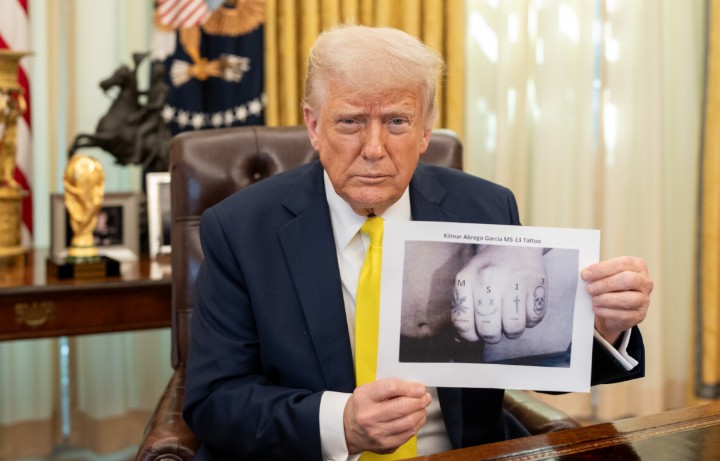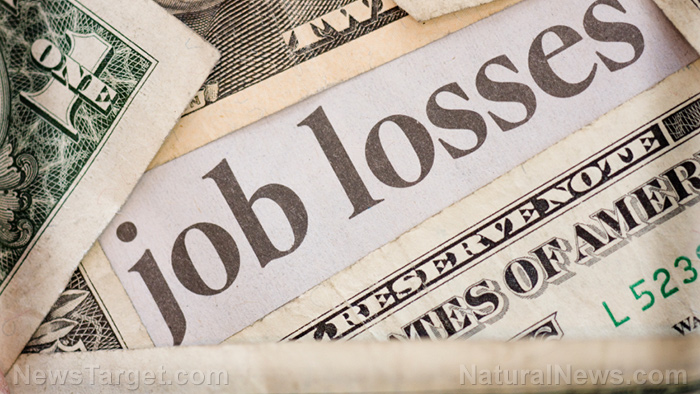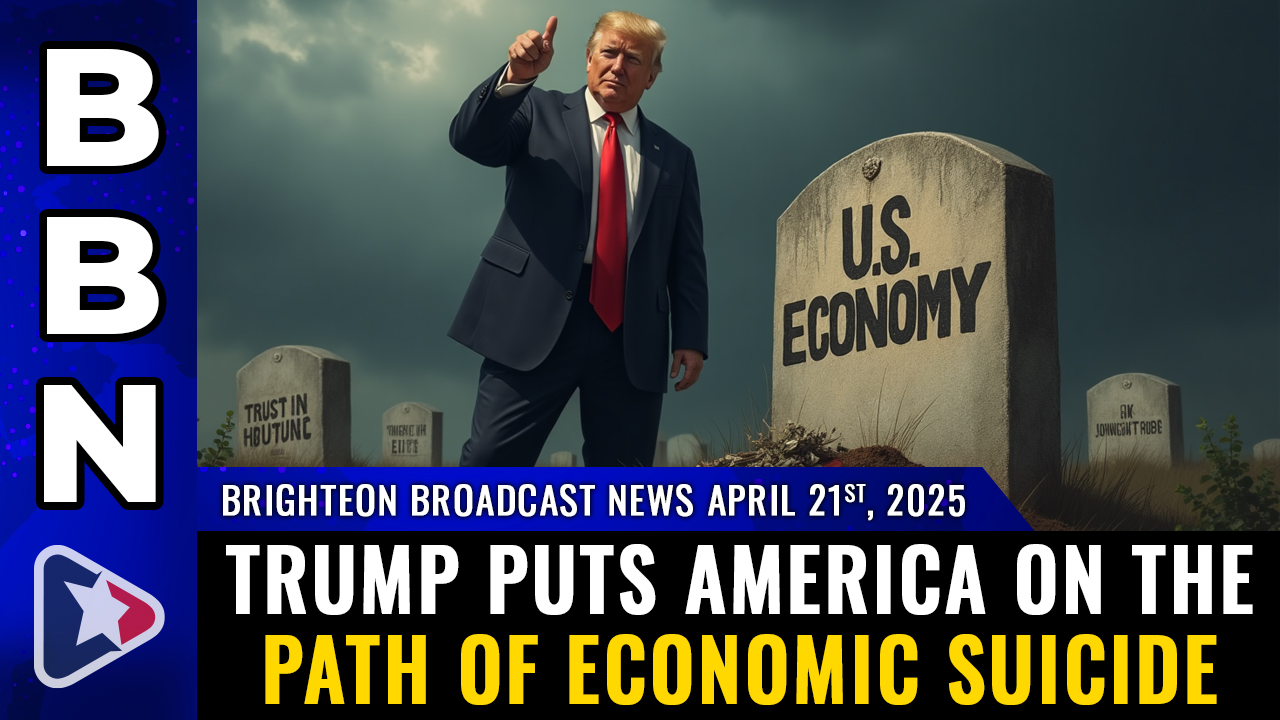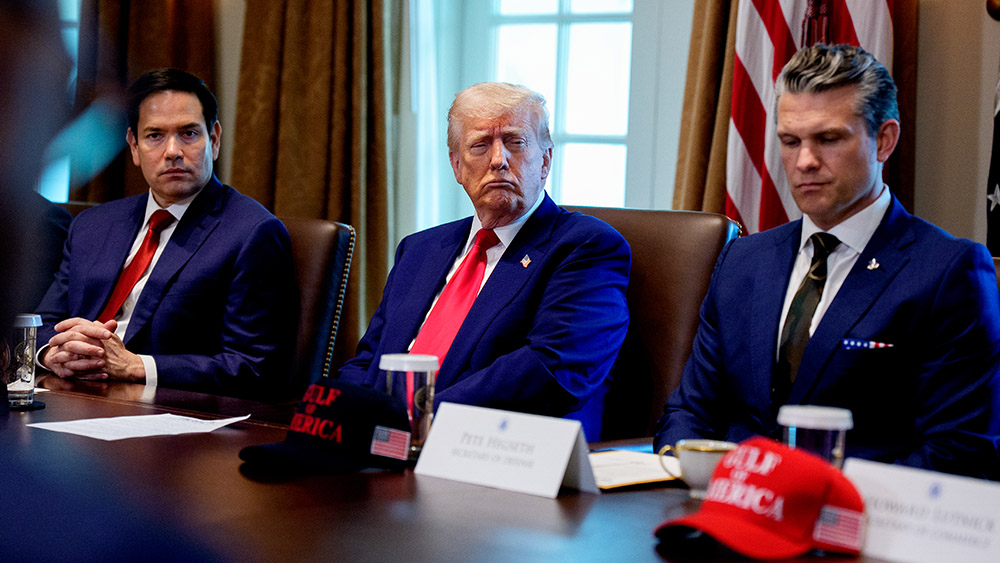EU pauses retaliatory tariffs as Trump temporarily halts new duties
By willowt // 2025-04-11
Tweet
Share
Copy

- The European Union paused its planned $23.25 billion tariffs on U.S. goods (e.g., maize, wheat, motorcycles) in response to the U.S. temporarily lowering its own tariffs on EU steel and aluminum. The pause lasts 90 days to allow for negotiations.
- Global markets rallied after the announcement, with European shares surging and U.S. stock indexes rising, easing fears of an immediate trade escalation. However, EU leaders warned that tariffs could return if talks fail.
- The U.S. recently imposed steep tariffs (25% on steel/aluminum, 10% on other imports) to counter perceived unfair trade practices, sparking market turmoil and erasing trillions in value.
- The U.S. raised tariffs on Chinese imports to 125%, prompting China to vow retaliation. The yuan hit a record low, reflecting economic strain from the conflict.
- While the EU’s move offers a negotiation window, tensions remain high. The global economy faces uncertainty as disputes with China persist and U.S.-EU talks unfold.
Background and context
The decision to pause the EU's retaliatory tariffs comes after a tumultuous 24 hours in global markets. On Wednesday, President Trump imposed a 25% tariff on steel and aluminum imports from multiple countries, including Mexico and Canada, and a 10% blanket duty on almost all other U.S. imports. These tariffs were part of Trump's broader strategy to address what he perceives as unfair trade practices, particularly those of China. However, the sudden imposition of these tariffs sent shockwaves through global financial markets, erasing trillions of dollars in value and causing a surge in U.S. government bond yields.EU's response and market reactions
In a statement on X (formerly Twitter), von der Leyen said, "While finalizing the adoption of the EU countermeasures that saw strong support from our Member States, we will put them on hold for 90 days." This pause is intended to provide a window for negotiations and to stabilize the global economy. The EU's decision was met with relief in financial markets, with European shares surging and euro zone government bond yields jumping. However, von der Leyen also issued a clear warning: "If negotiations are not satisfactory, our countermeasures will kick in. Preparatory work on further countermeasures continues. As I have said before, all options remain on the table." This statement underscores the EU's commitment to protecting its economic interests and the potential for renewed tensions if negotiations fail.Impact on global trade and economy
The temporary reprieve from new tariffs has had a significant impact on global financial markets. U.S. stock indexes shot higher, and the relief continued into Asian and European trading on Thursday. European Central Bank (ECB) policymaker Francois Villeroy de Galhau described the pause as "less bad news" than before but cautioned that uncertainty remains a threat to trust and growth. The EU's decision to pause its tariffs is also seen as a strategic move to maintain pressure on the U.S. to negotiate in good faith. The EU is still assessing how to respond to U.S. car tariffs and the broader 10% levies that remain in place. This cautious approach reflects the complex interplay of economic and political factors at stake in the ongoing trade disputes.Trade war with China continues
While the EU has paused its tariffs, the trade war between the U.S. and China continues to escalate. President Trump increased tariffs on Chinese imports to 125% from the 104% level that went into effect on Wednesday. In response, China has vowed to "follow through to the end" if the U.S. insists on its own way, according to Commerce Ministry spokesperson He Yongqian. China has already imposed 84% tariffs on U.S. imports and may respond further. The ongoing trade tensions between the U.S. and China have significant implications for the global economy. China's yuan hit its lowest level against the dollar since the global financial crisis, reflecting the market's concerns about the impact of the trade war on China's economic growth.Conclusion
The EU's decision to pause its retaliatory tariffs in response to President Trump's temporary lowering of new duties represents a cautious but hopeful step toward stabilizing global trade relations. While the pause provides a window for negotiations, the underlying tensions and economic stakes remain high. The trade war with China continues to be a major source of uncertainty, and the global economy remains on edge as the U.S. and its trading partners navigate these complex and volatile waters. The coming weeks will be crucial in determining whether these temporary measures can lead to more permanent solutions or if they are merely a brief respite before the next round of trade disputes. Sources include: TheNationalPulse.com CBC.ca NYPost.comTweet
Share
Copy
Tagged Under:
economy China market crash politics Trump foreign relations EU Europe White House big government globalism finance risk money supply bubble progress tariffs trade wars economic riot finance riot
You Might Also Like
POLL: 81% of Americans fear job loss amid surging layoffs and economic uncertainty
By Laura Harris // Share
Chinese EV giant BYD surges past Tesla with ‘God’s Eye’ self-driving tech
By Lance D Johnson // Share
Gold surges past $3,400 as economic uncertainty fuels historic safe-haven rush
By Cassie B. // Share
Recent News
Transforming your house into a survival haven before SHTF
By zoeysky // Share
Apple to shift iPhone production to India by 2026 amid U.S.-China trade war
By willowt // Share











